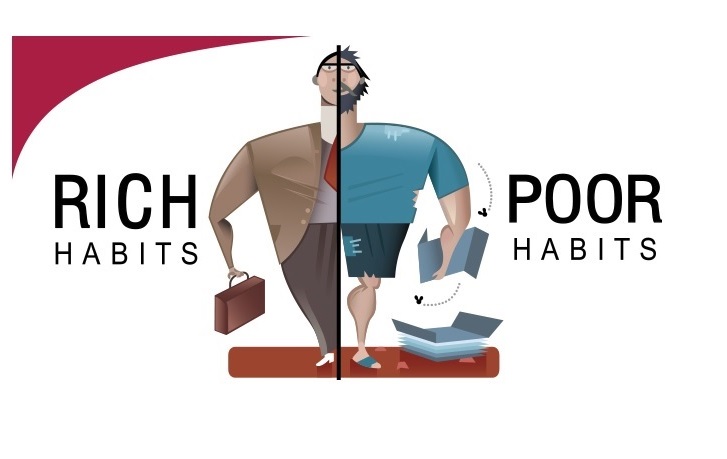Frugality has long been a badge of honor in personal finance. For decades, we’ve been told to clip coupons, buy in bulk, and downsize everything from our homes to our lattes. But in 2025, some of the most commonly recommended cost-cutting strategies are not only ineffective. They can actually backfire.
With inflation reshaping the economy, technology transforming the way we spend, and new economic realities hitting everything from energy to groceries, yesterday’s tips often no longer apply. In fact, clinging to outdated savings strategies might be costing you more money, time, or even quality of life.
Here are 8 popular cost-cutting habits that are quietly outdated in 2025—and what to do instead.
1. Clipping Coupons by Hand
It used to be that Sunday paper couponing was a serious money-saving ritual. People kept binders, organized inserts, and saved hundreds by matching deals. But in 2025, paper coupons will have largely disappeared. Most major brands now rely on digital promotions, loyalty apps, and dynamic pricing.
And if you’re still spending hours scouring mailers and cutting paper coupons, you’re likely wasting time chasing tiny discounts that are already baked into dynamic online prices. Worse, many of these coupons are for processed or brand-name items that cost more than generic alternatives—even after the discount.
What to do instead: Use digital tools like Honey, Rakuten, or store apps (Target Circle, Safeway Just For U) that automatically apply digital savings. Focus more on price tracking than traditional discounting.
2. Turning Off the AC or Heat to “Save Money”
Energy conservation is important, but going without heating or cooling entirely to save money is both outdated and potentially dangerous, especially for older adults. In 2025, homes are increasingly equipped with smart thermostats that optimize energy use more efficiently than manual fiddling.
Also, extreme weather patterns—hotter summers and colder winters—mean skipping climate control isn’t just uncomfortable. It can increase health risks and reduce the lifespan of your appliances and home materials.
What to do instead: Invest in a programmable smart thermostat that balances energy savings with comfort. Many local utility companies offer rebates for upgrading.
3. Buying in Bulk Without a Plan
Buying in bulk has long been hailed as a savings strategy—think warehouse club memberships and supersized everything. But inflation and supply chain fluctuations have made bulk pricing unpredictable. And if you’re not planning your purchases carefully, you may be wasting money on items that spoil or expire before you can use them.
In 2025, the “bulk discount” is no longer guaranteed. In many cases, individual items or smaller sizes are cheaper per unit, especially when discounts are applied at the register.
What to do instead: Audit your actual usage. Use apps like Flipp or Basket to compare per-unit prices before assuming bulk is cheaper. Only bulk-buy non-perishables you’re sure you’ll use (think: toilet paper, detergent, canned goods).
4. Cutting Out Streaming Services Entirely
In the early 2010s, cancelling cable and streaming services was a smart financial move. But in 2025, digital access is part of modern life. Completely eliminating streaming services to save $10–15/month might not be as wise as it seems—especially if it’s your primary form of entertainment or news access.
Also, many seniors and retirees now rely on streaming for exercise routines, online education, spiritual services, and social connection. Cutting them off can increase feelings of isolation, especially if you’re already not spending on outside activities.
What to do instead: Consolidate or rotate subscriptions. Use family plans when possible. You don’t need five platforms at once, but having one or two carefully chosen services may be a better value than giving them up entirely.
5. Driving Across Town for Cheaper Gas
We’ve all done it: driven 15 minutes out of the way for gas that’s five cents cheaper per gallon. But in 2025, this habit is rarely worth it.
Gas prices fluctuate so rapidly that any savings can be erased before your next fill-up—and the money saved often doesn’t justify the mileage, time, or wear and tear on your car. With EVs becoming more common and hybrid vehicles improving efficiency, gas-focused savings strategies are becoming obsolete.
What to do instead: Use apps like GasBuddy to check prices en route rather than planning special trips. If you’re still using a gas vehicle, combine errands and use grocery store fuel rewards to save without wasting time or fuel.

6. Only Shopping at Dollar Stores
Dollar stores were once the frugal shopper’s haven. But as prices have crept up (hello, $1.25 Tree), many dollar stores now stock low-quality items at inflated margins. Products are often smaller in size, lower in quality, and less durable—meaning you buy more often.
Additionally, with growing concerns about health, sustainability, and safety, some dollar store items may cost you more long-term—think expired food, faulty electronics, and household goods made with questionable materials.
What to do instead: Compare unit prices at major retailers or online, especially on essential goods. Sign up for membership programs (like Walmart+, Amazon, or Target Circle) that offer better value and buyer protection.
7. Avoiding All Subscription Services to “Save Money”
We’re told to cancel every subscription, but not all subscriptions are created equal. In 2025, many subscription services offer real long-term value—from meal kits that reduce food waste to automatic delivery of medications or essentials that help you avoid impulse buys. Cancelling everything without evaluating what each one saves or offers may mean you end up spending more elsewhere.
What to do instead: Do a quarterly audit. Keep the subscriptions that simplify life, improve health, or eliminate unnecessary spending elsewhere. Cancel the ones that pile up unused.
8. Waiting for the “Big Sale” to Buy Necessities
The old advice said to wait for sales—Labor Day, Black Friday, end-of-season clearances. But in 2025, with dynamic pricing algorithms and on-demand e-commerce, waiting can cost you. Prices now change daily, and essentials often sell out long before traditional sales roll around.
You may also miss out on price drops that happen randomly or in flash sales. And if you’re waiting to buy something critical (like shoes, appliances, or medical devices), the delay may affect your quality of life or even your health.
What to do instead: Use price-tracking tools like CamelCamelCamel or Honey to monitor prices in real-time. Buy necessities when you need them, not only when they’re “on sale.”
What These Outdated Tips All Have in Common
They were built for a world that no longer exists.
A world where prices were stable and predictableA world where goods didn’t expire in transit or increase 20% in a monthA world where time wasn’t one of your most valuable currencies
Today, being frugal is about being strategic, not just restrictive. The goal is no longer to deny yourself everything in the name of discipline, but to align spending with values, timing, and modern tools.
Smarter Savings in 2025
So what does modern cost-cutting look like?
Focus on value over price: The cheapest option isn’t always the most cost-effective.
Embrace technology: Price-tracking apps, cashback rewards, and digital coupons are far more efficient than analog alternatives.
Audit frequently: Review your recurring expenses every few months—not just yearly.
Think long-term: Time and health are as valuable as money. Don’t cut costs in ways that reduce your safety, mobility, or quality of life.
Prioritize flexibility: Subscription models, usage-based pricing, and digital services can save money when managed wisely.
Are You Still Saving Like It’s 2005?
In today’s economy, clinging to outdated cost-cutting advice could cost you more than you think. The personal finance landscape has changed, and so must the strategies we rely on.
What’s one old-school savings habit you’ve held onto? And is it still working for you, or is it time to evolve with the times?
Read More:9 Money Moves That Feel Smart But Ruin Your Future
10 Things You Were Taught About Money That Are Completely Wrong
Riley Schnepf is an Arizona native with over nine years of writing experience. From personal finance to travel to digital marketing to pop culture, she’s written about everything under the sun. When she’s not writing, she’s spending her time outside, reading, or cuddling with her two corgis.


























